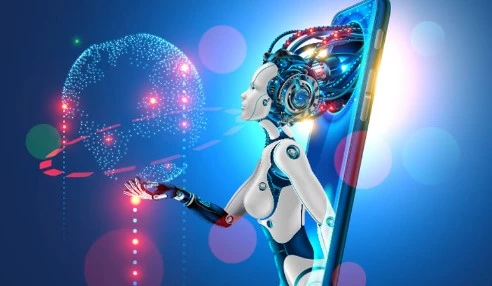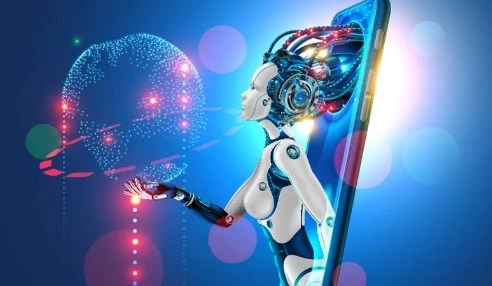AI in digital marketing is transforming the way businesses approach customer engagement and campaign optimization.
 AI is now at the heart of many digital marketing strategies, offering the ability to automate processes, enhance customer experiences, and deliver highly targeted content. With the rise of advanced machine learning algorithms and data analytics, businesses can use AI to gather and interpret large volumes of data in ways that were once unimaginable, making marketing efforts more efficient and precise.
AI is now at the heart of many digital marketing strategies, offering the ability to automate processes, enhance customer experiences, and deliver highly targeted content. With the rise of advanced machine learning algorithms and data analytics, businesses can use AI to gather and interpret large volumes of data in ways that were once unimaginable, making marketing efforts more efficient and precise.
AI’s ability to process and analyze vast amounts of data in real-time has become one of its most valuable assets in digital marketing. Marketers can now track customer behavior, interactions, and preferences more effectively, allowing for deeper insights into consumer trends. These insights help businesses refine their marketing strategies, ensuring they are aligned with what customers truly want. By understanding patterns in user activity, AI can suggest more personalized content, increasing the chances of engaging customers and ultimately converting them into buyers.
Personalization has become a cornerstone of digital marketing, and AI plays a major role in this area. AI tools can help marketers create highly customized content based on individual user behavior, preferences, and past interactions. Whether it’s recommending products on an e-commerce site or curating specific content for a social media campaign, AI ensures that the content feels relevant to each user, which has been shown to improve engagement and conversion rates. By offering targeted experiences, businesses can build stronger connections with their audiences, leading to improved customer loyalty and satisfaction.
AI-powered chatbots and virtual assistants are another key development in digital marketing. These tools have revolutionized how companies interact with customers online. Chatbots, for example, can handle customer inquiries, guide users through product selections, and even process transactions in real time. They help companies provide immediate responses to customer questions and ensure that support is available 24/7. By automating routine customer service tasks, businesses free up human agents to focus on more complex issues, thus improving overall efficiency and satisfaction.
The use of AI also extends to advertising, where it is helping marketers deliver more precise and effective ad targeting. Traditional advertising methods often relied on broad demographic data, but AI enables advertisers to go beyond basic categories, using sophisticated algorithms to analyze consumer behavior and predict the likelihood of an individual engaging with an ad. AI can also optimize ad placement in real-time, adjusting campaigns based on data such as which ads are generating the most interactions, and ensuring that marketing dollars are spent efficiently.
Real-time optimization is one of the major benefits of AI in digital marketing. With AI, marketers can continuously monitor their campaigns and adjust strategies on the fly. AI tools can analyze the performance of ads, email campaigns, and social media posts, providing actionable insights that allow businesses to tweak their approaches for better results. For instance, if an ad is underperforming, AI can suggest changes to the copy, targeting, or bidding strategy, helping marketers make data-driven decisions without requiring manual intervention.
Predictive analytics is another area where AI is making an impact in digital marketing. By examining historical data, AI can forecast future trends, allowing businesses to stay ahead of the curve. For example, AI can predict which products or services are likely to see an increase in demand, or when certain customer segments are most likely to engage with a campaign. This predictive capability enables businesses to plan more effectively and launch marketing campaigns that resonate with customers at the right time.
Beyond customer engagement, AI also helps marketers streamline repetitive tasks. From managing social media accounts to automating email campaigns, AI can handle many of the time-consuming tasks that traditionally required manual input. This automation allows marketers to focus on strategy and creative aspects of campaigns, enhancing productivity and reducing the need for a large workforce. With AI, businesses can scale their marketing efforts without increasing operational costs, making it an attractive option for companies of all sizes.
As AI technology continues to evolve, it is expected to become even more integral to digital marketing. With advances in areas such as natural language processing, computer vision, and deep learning, AI will offer even more refined tools for personalizing content, analyzing data, and optimizing campaigns. In the future, AI-driven marketing will become a competitive necessity for businesses looking to engage their audiences effectively and stay ahead of the competition in a crowded digital landscape. By leveraging the full potential of AI, companies can foster stronger relationships with customers and drive long-term growth.


